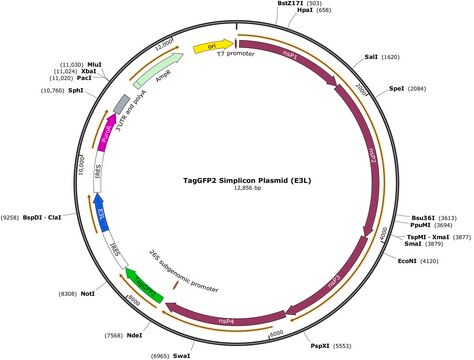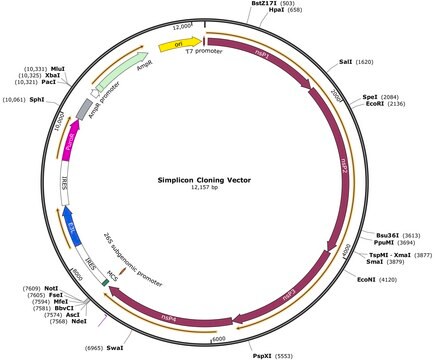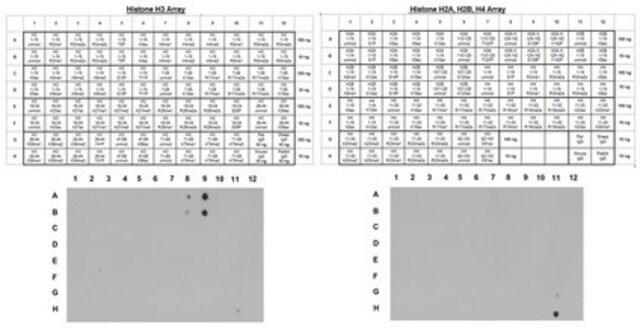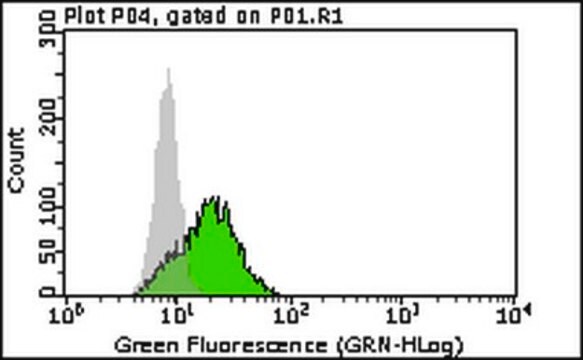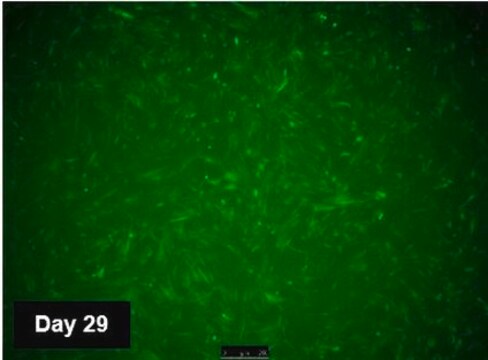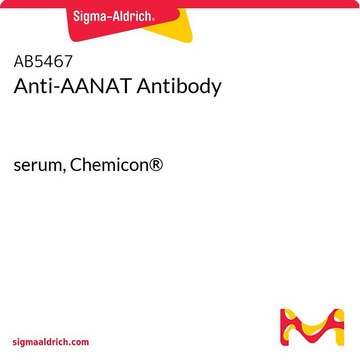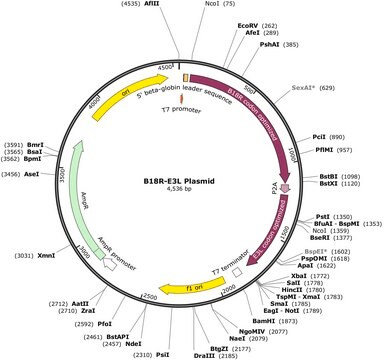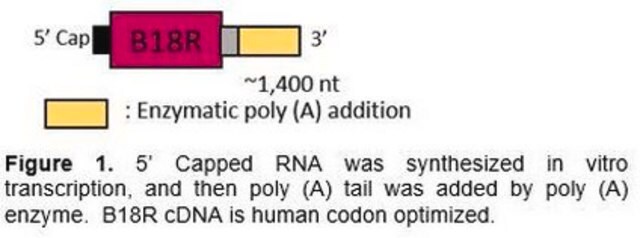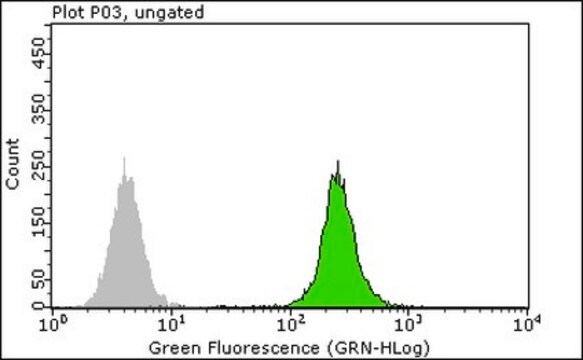MABE1078
Przeciwciało anty-TAF10/TAFII30, klon 23TA-1H8
ascites fluid, clone 23TA-1H8, from mouse
Synonim(y):
Transcription initiation factor TFIID subunit 10, STAF28, TAF(II)30, TAFII-30, TAFII30, Transcription initiation factor TFIID 30 kDa subunit
About This Item
Polecane produkty
pochodzenie biologiczne
mouse
Poziom jakości
forma przeciwciała
ascites fluid
rodzaj przeciwciała
primary antibodies
klon
23TA-1H8, monoclonal
reaktywność gatunkowa
human
spodziewany brak reakcji z
mouse
metody
ChIP: suitable
immunocytochemistry: suitable
immunoprecipitation (IP): suitable
western blot: suitable
izotyp
IgG1κ
numer dostępu NCBI
numer dostępu UniProt
Warunki transportu
dry ice
docelowa modyfikacja potranslacyjna
unmodified
informacje o genach
human ... TAF10(6881)
Opis ogólny
Specyficzność
Immunogen
Zastosowanie
Analiza Western Blotting: Reprezentatywna partia wykryła TAF10 (TAFII30) w ekstraktach jądrowych HeLa, jak również w kompleksie immunologicznym SAGA zawierającym SPT20, ale nie w kompleksie immunologicznym ATAC zawierającym ADA2a (Nagy, Z, et al. (2010). Cell. Mol. Life Sci. 67(4):611-628).
Analiza Western Blotting: Reprezentatywne partie wykryły obecność TAF10 (TAFII30) w kompleksach zawierających TAFII30 immunoprecypitowanych z ekstraktów jądrowych HeLa (Nagy, Z., et al. (2009). Mol .Cell. Biol. 29(6):1649-1660; Wieczorek, E., et al. (1998). Nature. 393(6681):187-191).
Analiza immunoprecypitacji: Reprezentatywne partie immunoprecypitowanych kompleksów zawierających TAF10- (TAFII30-) z ekstraktów jądrowych HeLa (Nagy, Z., et al. (2009). Mol .Cell. Biol. 29(6):1649-1660; Wieczorek, E., et al. (1998). Nature. 393(6681):187-191).
Epigenetics & Nuclear Function
Transcription Factors
Jakość
Western Blotting Analysis: A 1:1,000 dilution of this antibody detected TAF10/TAFII30 in 10 µg of A431 cell lysate.
Opis wartości docelowych
Postać fizyczna
Przechowywanie i stabilność
Zalecenia dotyczące postępowania: Po otrzymaniu i przed zdjęciem nasadki odwirować fiolkę i delikatnie wymieszać roztwór. Rozdzielić do probówek do mikrowirówki i przechowywać w temperaturze -20°C. Unikać powtarzających się cykli zamrażania/rozmrażania, które mogą uszkodzić IgG i wpłynąć na działanie produktu.
Inne uwagi
Oświadczenie o zrzeczeniu się odpowiedzialności
Nie możesz znaleźć właściwego produktu?
Wypróbuj nasz Narzędzie selektora produktów.
Kod klasy składowania
12 - Non Combustible Liquids
Klasa zagrożenia wodnego (WGK)
WGK 1
Temperatura zapłonu (°F)
Not applicable
Temperatura zapłonu (°C)
Not applicable
Certyfikaty analizy (CoA)
Poszukaj Certyfikaty analizy (CoA), wpisując numer partii/serii produktów. Numery serii i partii można znaleźć na etykiecie produktu po słowach „seria” lub „partia”.
Masz już ten produkt?
Dokumenty związane z niedawno zakupionymi produktami zostały zamieszczone w Bibliotece dokumentów.
Nasz zespół naukowców ma doświadczenie we wszystkich obszarach badań, w tym w naukach przyrodniczych, materiałoznawstwie, syntezie chemicznej, chromatografii, analityce i wielu innych dziedzinach.
Skontaktuj się z zespołem ds. pomocy technicznej